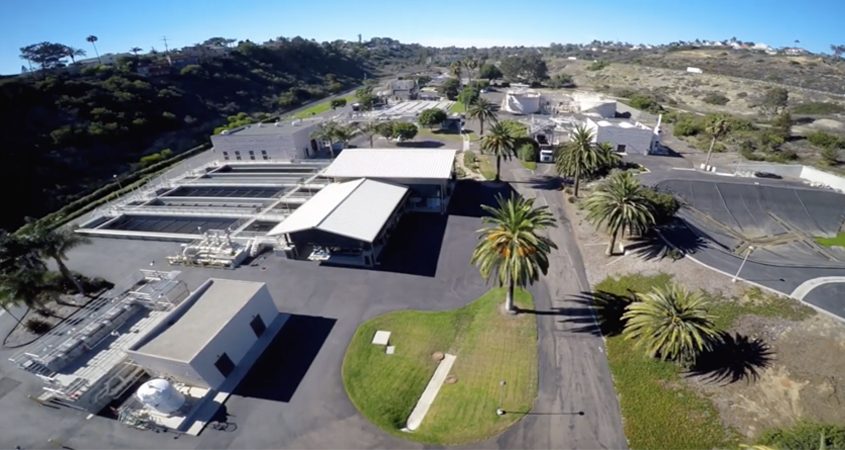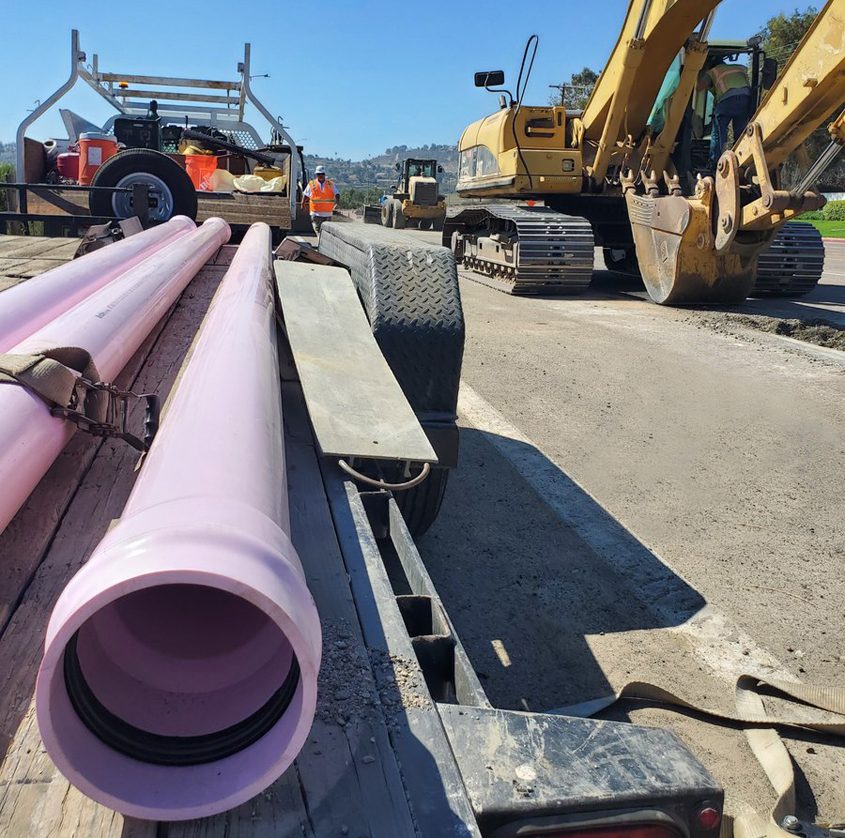HOA Homefront: New Law Restricts Watering of HOA ‘Nonfunctional Turf’
HOAs are required to stop using potable water to irrigate nonfunctional turf or to remove such turf from common areas by the end of 2028.
HOAs are required to stop using potable water to irrigate nonfunctional turf or to remove such turf from common areas by the end of 2028.
The Del Mar City Council voted Feb. 20 to proceed with a public noticing period for potable water and wastewater rates increases that, pending approval by the City Council, would take effect July 1.
Restaurants, stores and other property owners will be banned from using drinking water to irrigate their lawns under a new California law. Assembly Bill 1572 requires business owners, public agencies and other entities to phase out the use of potable water to irrigate nonfunctional and decorative turf starting in 2027.
Tiny pieces of plastic shed from food wrappers, grocery bags, clothing, cigarette butts, tires and paint are invading the environment and every facet of daily life. Researchers know the plastic particles have even made it into municipal water supplies, but very little data exists about the scope of microplastic contamination in drinking water. After years of planning, California this year is embarking on a first-of-its-kind data-gathering mission to illuminate how prevalent microplastics are in the state’s largest drinking water sources and help regulators determine whether they are a public health threat.
For decades, environmentalists have decried ocean desalination as an ecological disaster, while cost-savvy water managers have thumbed their noses at desal’s lofty price tag. But as the American Southwest barrels into a new era of extreme heat, drought and aridification, officials and conservationists are giving new consideration to the process of converting saltwater into drinking water, and the role it may play in California’s future.
A proactive approach to developing diversified water sources, including water recycling projects and conservation efforts, are helping the San Diego region weather the current drought.
The Olivenhain Municipal Water District is working on multiple projects to expand the use of recycled water. The U.S. Bureau of Reclamation awarded the North San Diego Water Reuse Coalition, led by OMWD, $17.8 million in August for the development of recycled water infrastructure in North County.
Combined with the $6.1 million the federal agency granted to the coalition in 2021, up to $23.9 million will help cover costs for work performed on water reclamation and reuse projects through 2025. The coalition consists of nine water and wastewater agencies coordinating recycled water efforts across jurisdictional boundaries.
“Our board is proud to be a water district that consistently innovates to reduce project costs,” said OMWD Board Director Neal Meyers. “We constantly develop new funding partnerships, and we aggressively pursue grant funds to help build our vital infrastructure projects at the lowest possible cost to our ratepayers.”

Recent construction of advanced water treatment facilities at the San Elijo Water Reclamation Facility allows for increased recycled water production. Photo: Courtesy SEJPA
The Regional Recycled Water Project will increase the capacity and connectivity of the recycled water storage and distribution systems of the coalition members and maximize reuse of available wastewater supplies.
To do this, the project will replace potable water uses with recycled water components, convert facilities to recycled water service, connect discrete recycled water systems to one another, increase recycled water storage capacity, and distribute recycled water to effectively meet recycled water demands.
Project objectives include optimizing available wastewater resources to help offset demands for imported potable water; proactively planning for facilities to meet demands for existing and planned growth in member service areas; combining resources and working together to maximize water reuse; and increasing water supply availability, reliability, and sustainability.
When all long-term project elements are completed, North San Diego County will gain approximately 41 million gallons per day of recycled water and potable reuse water.

Once complete, the Manchester Avenue Recycled Water Project will reduce demand for imported potable water by more than 10 million gallons every year. Photo: Olivenhain Municipal Water District
Work began on OMWD’s Manchester Avenue Recycled Water Project in summer of 2022. As of October 1, more than half of the total 6,884 feet of recycled water pipeline has been installed. Once complete, irrigation customers connecting to the pipeline will reduce demand for imported potable water by more than 10 million gallons every year.
(Editor’s note: The Olivenhain Municipal Water District is one of the San Diego County Water Authority’s 24 member agencies that deliver water across the metropolitan San Diego region.)
People wearing business suits and hard hats broke ground Wednesday in Santee for the East County Advanced Water Purification Plant.
It’s part of a plan of four East County water agencies to take wastewater, that’s now treated and dumped in the ocean, and turn it into water that’s clean enough to drink.
The water recycling plant is expected to provide 11.5 million gallons a day of purified wastewater for East County ratepayers.
The Olivenhain Municipal Water District recently completed the Manchester Avenue Potable Water Pipeline Project. In total, 3,700 linear feet of aged potable water pipeline was replaced along Manchester Avenue, Rancho Santa Fe Road and Encinitas Boulevard.
The pipelines previously serving water in this area were installed in 1961 and were approaching the end of their lifespan. OMWD takes a proactive approach in repairing and replacing aging water infrastructure to avoid leaks and ensure the continuation of uninterrupted water service to its customers. In the third year of drought in California, projects like this pipeline replacement, help save potable water and reduces costs to ratepayers.
“Emergency leaks are very costly, can waste millions of gallons of water, and can be disruptive to surrounding communities,” said Bob Topolovac, OMWD board director. “The investments we made to prevent these emergencies will benefit our ratepayers well into the future.”
Construction work is underway in several areas of San Diego, building major infrastructure projects for Phase 1 of Pure Water San Diego.
Pipelines, pump stations, and treatment facilities are all being built in the Morena, Bay Park, Clairemont, University City, Miramar, and Scripps Ranch communities. It is a milestone toward the realization of securing a local, drought-resilient water supply for San Diegans for generations to come.
In December, the City of Camarillo, Calif., announced the start-up and commissioning of its North Pleasant Valley (NPV) Groundwater Desalter Plant, moving the city closer to a more self-reliant, affordable potable water future.
For nearly two decades, groundwater quality in the northern portion of the Pleasant Valley Groundwater Basin in Ventura County continuously declined due primarily to the infiltration of poor-quality surface water. These challenges compelled the city to reduce groundwater pumping and increase the blending of imported water with Wells A and B, two of Camarillo’s largest wells.